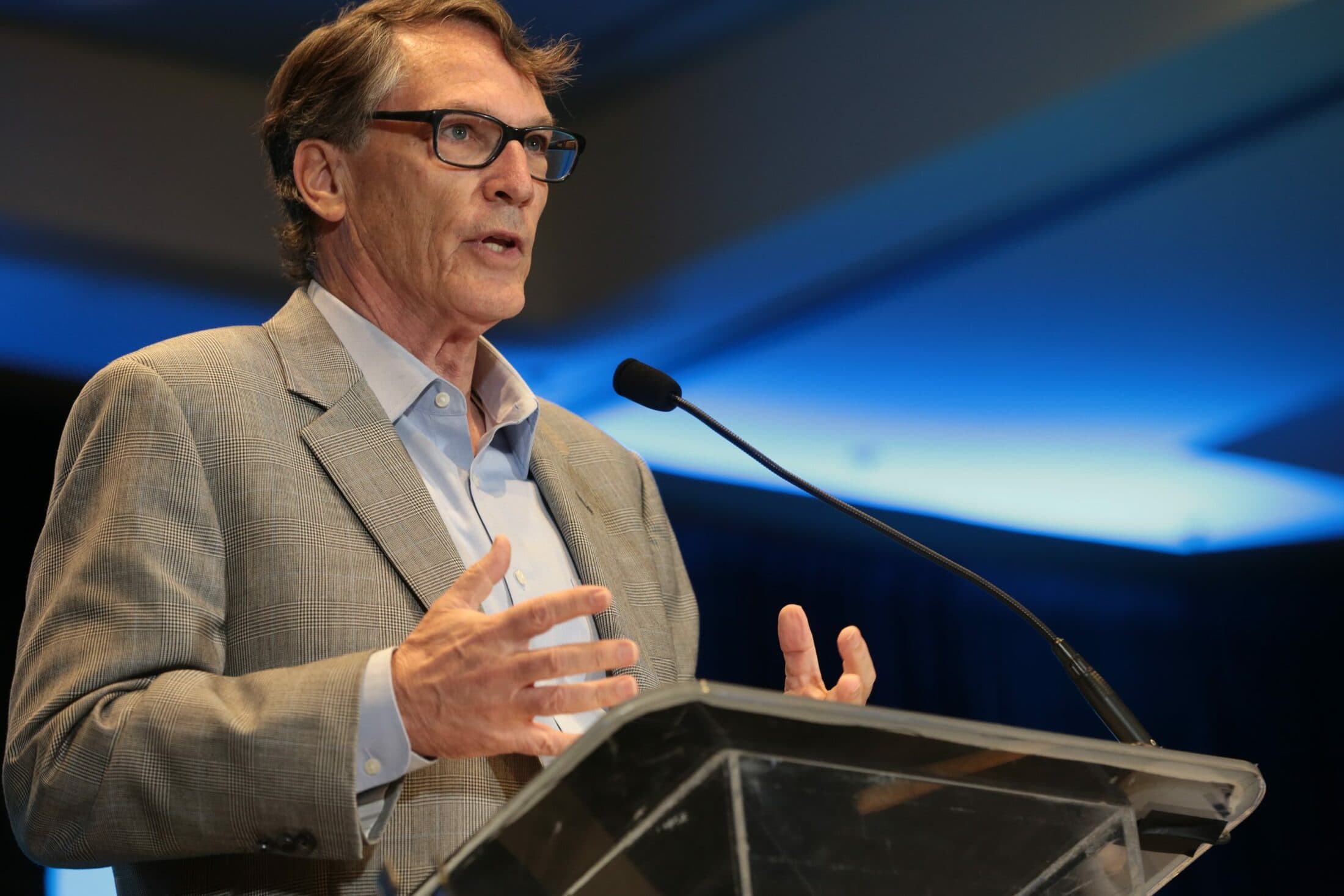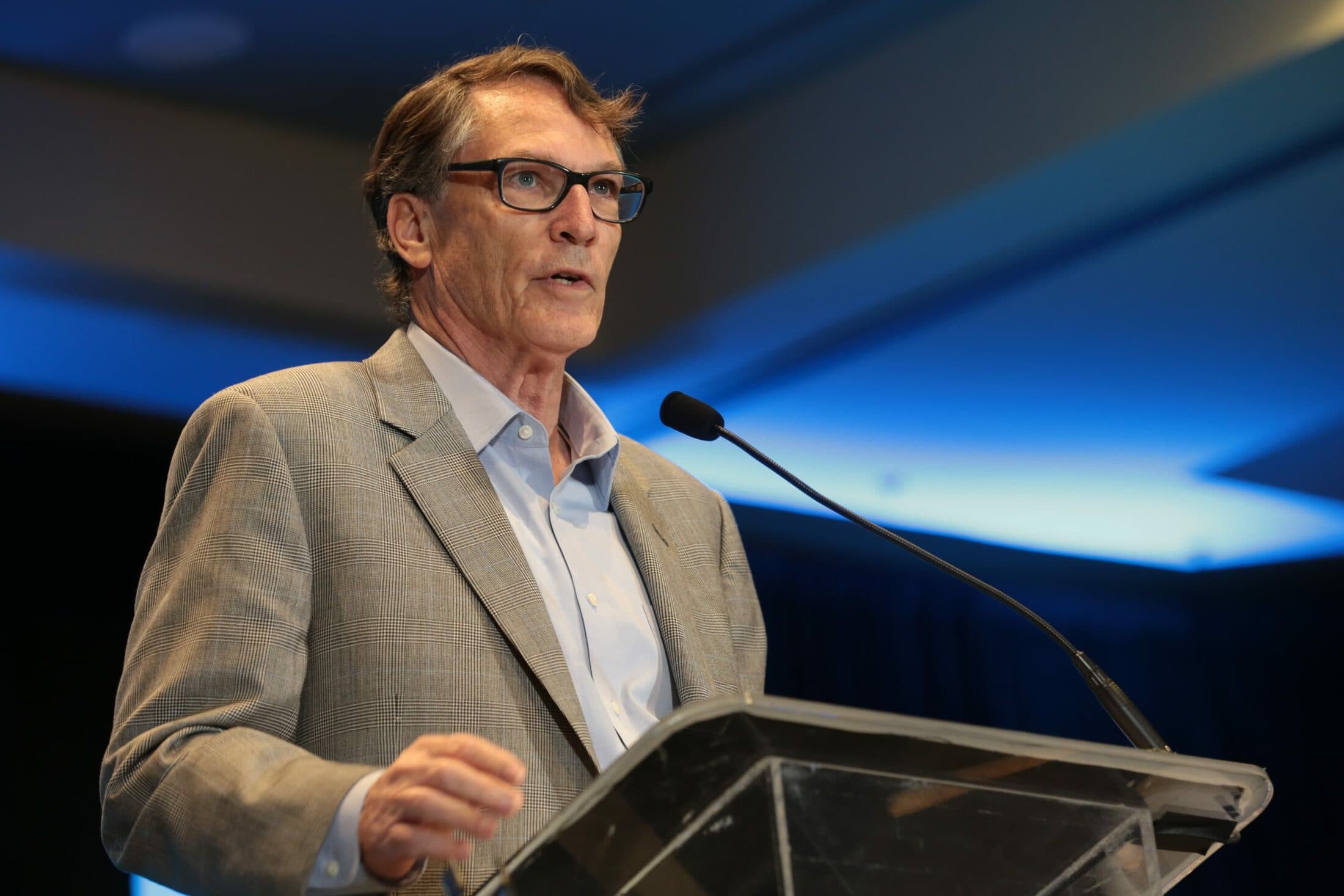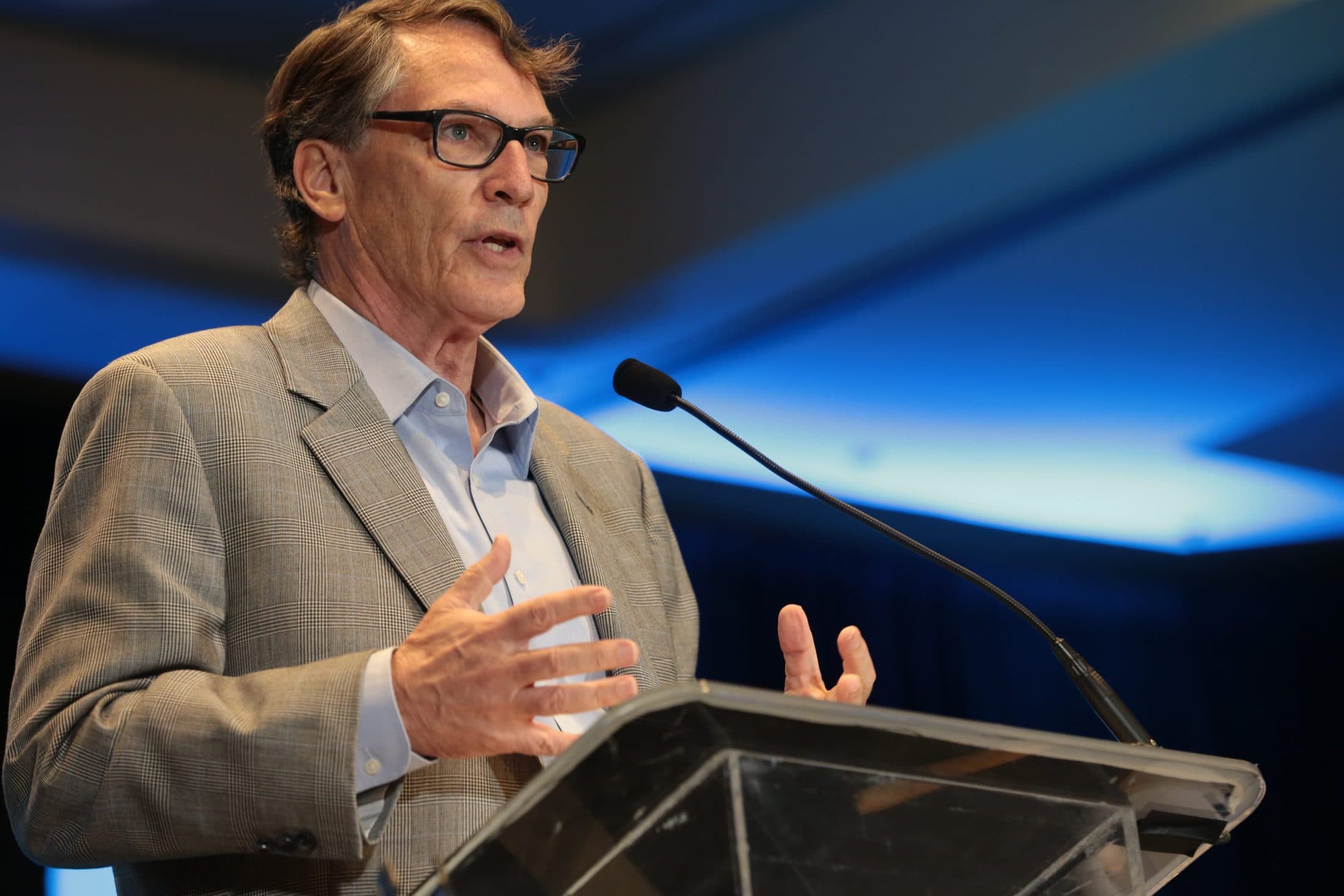 MINNEAPOLIS, MN (June 22, 2018) – In his last report as ECC president, Gary Walter spoke to delegates at the denomination’s 133rd Annual Meeting of his hopes for the future of Covenant.
MINNEAPOLIS, MN (June 22, 2018) – In his last report as ECC president, Gary Walter spoke to delegates at the denomination’s 133rd Annual Meeting of his hopes for the future of Covenant.
He focused on Covenant cohesion, multiethnic inclusion, and navigating issues of human sexuality.
The Covenant has found “great strength” in being highly relational, but that relationality becomes more challenging as the denomination grows with new people and becomes more culturally and ethnically diverse, Walter said. He noted that 60 percent of people attending Covenant churches today were not attending one 10 years ago.
Walter called on Covenanters to be continually committed to investing in their own lives as well as in their churches to making connections. There are a lot of opportunities around camps conference, and events as well as local projects and pulpit exchanges, he added.
That cohesion also must occur in a tumultuous world. “Our society is in a woeful spot right now with regards to relationships across dimensions that fracture the world,” Walter lamented. “In too many ways it feels as if we are regressing and polarizing. A broken and fractured world just keeps right on breaking and fracturing over and over again.”
Walter pointed to ways in which the Covenant has contributed to racial inclusion. A third of congregations are now among populations of color or intentionally multiethnic. The Covenant was the first denomination with European immigrant roots to cross the 20 percent threshold of diversity among its members. “We have the most diverse leadership team of any denomination that I’m aware of,” Walter said.
He added, however, “Populations of color in this day and age identifying with a white majority denomination—there is a cost to pay in their own communities.” Amid the racial tensions in the country, it can be hard for those communities to understand why ethnic churches would want to be a part of the Covenant, Walter said.
The Covenant will need to be intentionally relational if it is to continue to be a multiethnic mosaic, Walter said. “Relationality means we strive for honest and sincere relationships and connections. It has to be about our life centered together in Christ.”
We’re doing good, but you know what? We can do better.
Walter told delegates that, “Just because we don’t always get it right doesn’t mean it isn’t right,” Walter said. “So we move forward with missteps, yes, but also with hope, resolve, lament and solidarity.”
That solidarity was made explicit when roughly 1,000 people stood and applauded after Walter asked members of predominantly Hispanic churches to stand and told them that despite the zero-tolerance policy of the government on immigration, “Your lives matter.”
Walter also told the gathering that the lives of LGBTQ persons matter and said that is why the Covenant is committed to doing good ministry with people of the sexual minority communities while continuing to affirm the denomination’s position that God’s standard is faithfulness in heterosexual marriage and celibacy in singleness.
Walter said everyone is prone to wander from various moral standards and cautioned against selective indignation. “There is no intent to single out select behavior,” he said. “It’s a high challenge to every one of us. Single married, young, old, regardless of gender, regardless of orientation.”
The denomination can move forward by finding and discerning common ground that can be a frame of reference for God’s love, Walter said. He added that the conferences and denominations are committed to developing and curating resources and creating opportunities for broader conversation.
 Walter also announced that the Executive Board had commissioned a resource paper that will focus on Covenant freedom and responsibility. Resource papers are meant to help guide discussion and are not binding.
Walter also announced that the Executive Board had commissioned a resource paper that will focus on Covenant freedom and responsibility. Resource papers are meant to help guide discussion and are not binding.
“Freedom is a cherished value in the life of the Covenant,” Walter said. “We have six affirmations in the Covenant, and freedom in Christ is one of those. We also understand—have historically understood—that freedom has some boundaries around it, responsibilities associated with that freedom.”
“It has always been the interplay of those two things, not the independence of those two things, that has given the vitality of the Covenant to be a gracious and grounded place,” Walter said.
Writing the papers is a “very broad process” and requires multiple stages that will include all levels of the Covenant. No paper has made it to the Annual Meeting with less than seven drafts, Walter said.
Walter concluded by saying it would be a good thing if one day his name is not recognized throughout the Covenant because it shows that God’s mission is in the hearts and the hands of people that passes from generation to generation.
He also recalled the words of the late pastor, Willie Jemison, of whom Walter said, “If you do this relationship tree of how African American ministry expanded in the Covenant, everything would trace back to Dr. Jemison.”
When the two would meet, Walter said, “I would tell Dr. Jemison we’re doing well, and he’d say, ‘You’re doing good, but you can do better.’ Every conversation with him ended that way—with a word of encouragement and a word of challenge.”
And that is how Walter ended his report. “I guess my last words to us as a denomination are, we’re doing good, but you know what? We can do better. So let’s continue to walk further and go deeper in Christ and further in mission.”
Walter teared up as he ended, saying, “Fare thee well as you walk as obedient humble servants, fare thee well, fare thee well, fare thee well. Because we know that our Redeemer lives.”














